Workshop Theme and Goals
Users of digital devices are increasingly confronted with a tremendous amount of notifications that appear on multiple devices and screens in their environment. If a user owns a smartphone, a tablet, a smartwatch and a laptop and an email-client is installed on all of these devices an incoming email produces up to four notifications — one on each device. In the future we will receive notifications from all our ubiquitous devices. Therefore, we need an smart attention management for incoming notifications. One way for a less interrupting attention management could be the use of ambient representations of incoming notifications.
Following the successful UbiTtention 2016 and UbiTtention 2017 workshops, the UbiTtention 2018 workshop brings together researchers and practitioners from academia and industry.
The goal of this workshop is to discuss how the problems of information overload and overchoice — in our opinion two of the most relevant problems in information technology for the next few decades — can be solved. In the era of the Internet of Things (IoT) we have to handle incoming notifications from all our devices. Together with developments in smart city environments or with smart mobility the information overload will grow. In this workshop we want to focus on a larger understanding of the different roles notifications can play in a wide variety of computing environments including the office, the home, in cars, and other smart environments.
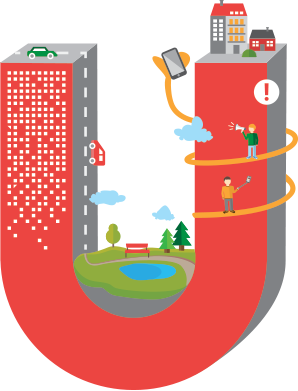
Topics of the workshop include, but are not limited to:
- Understanding behavior and habits around notifications
- Detection/prediction of availability, attention, and opportune moments for interruptions
- Ambient, peripheral, distributed and multimodal presentation of information or augmentation
- Timing of pro-active recommendations and user engagements
- Infrastructures, frameworks and tools for the development of smart attention systems
- Strategies for attention management from notifications of IoT devices
- Understanding users' behavior and habits around notifications and interruptions, including longer term user engagement and behavior change
- Use of ambient representations for big data analysis
- Management of information overload in smart city environments and cyber physical systems or smart mobility and vehicle environments
- Notifications in virtual reality (VR) and augmented reality (AR)
- Supporting the digital wellbeing of users
Keynote Speaker
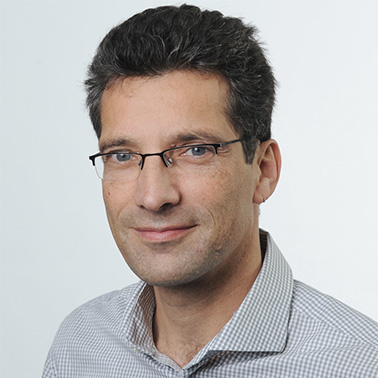 Prof. Dr. Antonio Krüger
Prof. Dr. Antonio Krüger
Since 2009 Antonio Krüger is a Globus-endowed professor for Computer Science in Retail and the scientific director of the Innovative Retail Laboratory at the German Research Center for Artificial Intelligence (DFKI GmbH). He is an internationally renowned expert on Man-Machine-Interaction and Artificial Intelligence. He has established the Mediainformatics study programme at the Saarland University in 2010 and directs it to this day. Antonio is a co-founder of the Saarbrücken-based technology company Eyeled GmbH, which focuses on the development of mobile and ubiquitous information systems. Many of his research findings have found their way into applications in retail and other industrial domains. He holds several high tech patents in the area of Human Computer Interaction. From 2004 to 2009 he was a professor of computer science and geoinformatics at the University of Münster and acted as the managing director of the institute for geoinformatics. He studied Computer Science and Economics at Saarland University and finished his Ph.D in 1999 as a member of the Saarbrücken graduate school of "Cognitive Science". Antonio has published more than 200 scientific articles and papers in internationally recognized journals and conferences and is member of several steering committees, editorial boards and scientific advisory committees.
Accepted Papers
We are very proud to have received so many excellent submissions. Please find a list of all 12 accepted papers below.
- Attention Management for Improved Renewable Energy Usage at Households using IoT-enabled Ambient Displays
Niaz Chowdhury and John Moore - Exploring Context-aware Proactive Blocking for Distraction Management
Inyeop Kim, Uichin Lee, and Narae Cha - Improved Smartphone Driving Mode System Design with Differentiated Notifications
Hyeonjung Park, Tadashi Okoshi, Shin Katayama, and JeongGil Ko - Losing the Power of Defaults: Exploring Changing Patterns in Enabling Mobile Notifications
Frank Bentley Best Paper
Best Paper - My Watch Says I'm Busy: Inferring Cognitive Load with Low-Cost Wearables
Martin Gjoreski, Mitja Lustrek, and Veljko Pejovic - Notification Log: An Open-Source Framework for Notification Research on Mobile Devices [slides]
Dominik Weber, Alexandra Voit, and Niels Henze - Nurture: Notifying Users at the Right Time Using Reinforcement Learning
Bo-Jhang Ho, Bharathan Balaji, Mehmet Koseoglu, and Mani Srivastava - OpenAlerts: A Software to Evaluate Smart Emergency Alerts and Notifications
João Diogo Falcão, Joel Krebs, Sumeet Kumar, and Hakan Erdogmus - Pseudo-Ambience: Filling the Gap Between Notifications and Continuous Information Displays
Jeffrey Blum, Jeremy Cooperstock, and Jessica Cauchard - Qualitative Investigation of Multi-Device Notifications
Alexandra Voit, Dominik Weber, and Niels Henze - Things of the Internet (ToI): Physicalization of Notification Data
Kieran Woodward and Eiman Kanjo - Wi-Mind: Wireless Mental Effort Inference
Tilen Matkovic and Veljko Pejovic
Workshop Program
October 12, 2018
Room 326
| From 08:00 | Registration opens |
| 09:00 - 09:30 | Interactive welcome session |
| 09:30 - 10:30 | Keynote "Reflections on Attention Management and Notification" Prof. Dr. Antonio Krüger |
| 10:30 - 11:00 | Coffee break |
| 11:00 - 11:45 | Paper session 1: IoT and Ambient Notifications
|
| 11:45 - 12:30 | Paper session 2: Predicting Opportune Moments
|
| 12:30 - 13:30 | Lunch break |
| 13:30 - 14:15 | Paper session 3: Understanding Behavior and Habits
|
| 14:15 - 15:00 | Paper session 4: Smart Attention Systems and Frameworks
|
| 15:00 - 15:30 | Coffee break |
| 15:30 - 17:00 | Group discussions |
| 17:00 - 17:30 | Closing remarks and future planning |
Important Dates
| Submission Deadline (extended) | July 27, 2018 (23:59 AoE) |
| Notification of Acceptance | August 10, 2018 |
| Camera Ready | August 20, 2018 (camera ready guidelines) |
| UbiComp Early Registration | September 7, 2018 (rates/registration, hotels) |
| Workshop Date (Full-Day) | October 12, 2018 |
Submission Details
A paper should be anonymized and should have a length of 2 to 6 pages (excluding references) in the SIGCHI Extended Abstracts format and will be reviewed by at least two workshop organisers. Successful submissions will have the potential to raise discussion, provide insights for other attendees, and illustrate open challenges and potential solutions. All accepted publications will be published on the workshop website and in the ACM Digital Library.
At least one author of each accepted paper needs to register for the conference and the workshop itself. During the workshop, each paper will be given time for an oral presentation. In addition, there will be room for demonstrations and hands-on sessions.
Organising Committee
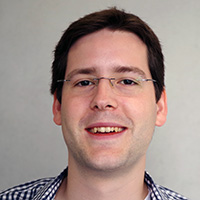 Dominik Weber
Dominik Weber
University of Stuttgart
weberdo.com
 Anja Exler
Anja Exler
Karlsruhe Institute of Technology
teco.edu
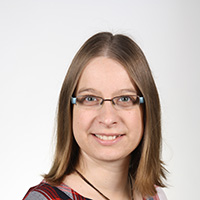 Alexandra Voit
Alexandra Voit
University of Stuttgart
alexandra-voit.de
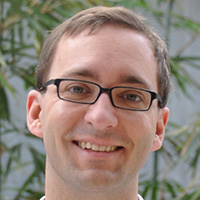 Niels Henze
Niels Henze
University of Regensburg
nhenze.net
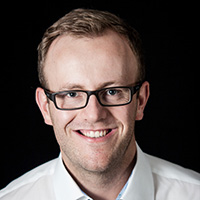 Sven Gehring
Sven Gehring
German University of Applied Sciences for Health Management
dhfpg.de
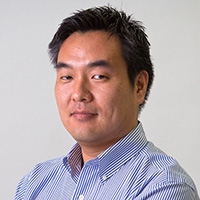 Tadashi Okoshi
Tadashi Okoshi
Keio University
okoshi.org
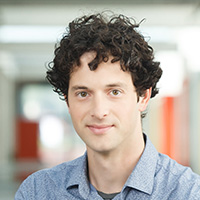 Veljko Pejovic
Veljko Pejovic
University of Ljubljana
lrss.fri.uni-lj.si
Contact
If you have any questions, don't hesitate to get in touch via email: ubittention-org@ht.sfc.keio.ac.jp
You can also get in touch via our Facebook page: